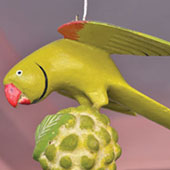India has a great tradition of making toys with wood. And this toy making is a skilful craft. These toys help a lot to children improve their skills while playing with different play objects. They completely live in a different world while playing with traditional toys. Toys are also used as decorative elements in Indian houses. Most of the houses have a showcase with various toys in Andhra Pradesh.
In Andhra Pradesh apart from Nirmal, other places also do wooden toys such as Etikoppaka and Kondapally. I visited Nirmal to know the toy-making process which are traditional wooden toys beautifully carved by craftsmen. During this project, I learned how the craftsmen make the toys from wood to the final shape.
Nirmal City and Toys
Nirmal is called as the land of toys, this little town of Nirmal is located in the hills and forests of the Adilabad district in the state of Telangana. This little town is known as a leading place for handicrafts on the India map. Nirmal is the land of crafts and craftsmanship. The speciality of this craftsmanship is the utilization of simple articles, which are available locally in abundance.
Simple materials are transformed into exquisite crafts and articles of utility. This art form originated in the 14th Century under the royal patronage of the ruling nobility. Nirmal craftsmen have expertise in wooden engravings. And the uniqueness of Nirmal crafts is that locally available materials are used, the basic material used is wood whether it is furniture, toys, plaques, bangles, or jewellery boxes.
They use Indigenous mineral and vegetable dyes to colour their products. When Nirmal toy crafts first started it was limited in their range. Initially, articles were based on figures and episodes from mythology and were purely art objects. But the dawn of the 17th century saw a new horizon of this art form. The local talent was exploited and articles of utility and decoration started to be manufactured.
History says that the Nizam of Hyderabad was very much inclined by the Nirmal craftsmanship. Once during his visit to Nirmal, Nizam was given a tremendous grand welcome, all the craftsmen indulged themselves in decorating the venue which included an intricately designed banana bud whose petals were coloured gold. This embellishment was suspended above Nizam’s seat, which unfurled and showered a cascade of golden-coloured petals on the Nizam.
Keeping pace with the fast-changing trends, Nirmal craftsmen have developed styles to suit the modern taste without moving away from the tradition and intricacy of the art. All these items are contemporary in design.


